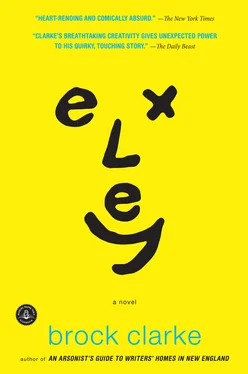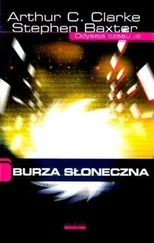Nonetheless, I worried — worried and, indeed, worry . Who is this man in the Veterans Affairs hospital? Can it really be M.’s father? If so, will M.’s mother welcome his father back into the family home? Will I be necessary if she does? And this Exley: How far will M. go to find him? What will happen if he does? What will happen if he doesn’t? Who is this K.? And why, oh why, was M.’s dear, lovely mother crying in her bathroom, especially if, as M. says, she’d received a call two weeks ago from the VA hospital and already dismissed it as another of M.’s lies?
I hope the good members of the NCMHP won’t judge me too harshly for what I do next. I call M.’s mother. She answers on the first ring. I can hear the television set burbling in the background. “M.?” she exclaims. “Where are you?” Her voice is a heartbreaking mixture of motherly concern and fury. I am suddenly and completely full of longing: I wish I was M. I wish I was the human male about whom M.’s mother is so worried, the human male she desires to be home with her so she can yell at him. The human male that she loves. I feel terrible: not because M. was at my home when he should have been at his, but because I am not he. I hope the NCMHP won’t judge me too harshly for this, either.
“No,” I say, and identify myself.
“Oh,” she replies. Her voice doesn’t exactly brighten, but it does become a bit less cloudy. “What do you want?”
“Well,” I begin. I fully intend to tell her everything, even though the NCMHP code of conduct makes clear that we are not to tell our patients’ loved ones everything — everything and, indeed, anything . I open my mouth, intending to utter the sentence, M. says he found his dad in the VA hospital , and then to continue from there. But all I can think of is M.’s mother crying in the bathroom and how whatever I will say will send her back there, weeping. My heart breaks a little at the thought. And I can also hear her coming back to the phone after her cry and wondering how I’d gotten M. to tell me what he’d told me, and me confessing to becoming the doctor M. wanted me to be, rather than the doctor she thought she was paying for, and how furious at me she’d be, and not out of love and worry, either. And my heart breaks a little more. So I don’t say anything. I just sit there, in my living room, with my mouth open, breathing like a masher into the phone receiver.
“What is it?” M.’s mother asks. I can hear the panic creeping into her voice. “Is it about M.?”
“No!” I say. Because I would have said anything not to say the things I’d been prepared to say, the things that would break her heart and mine. I will do anything not to break our hearts, including doing what I’d said, to myself, I wouldn’t: I will be a private detective. I will snoop around and try to learn something about K. and about the man in the VA hospital. I will even read this Exley’s book. I will not tell M.’s mother about any of this unless I have to. But for now, I have to say something. So I say, “It would be my honor if you’d accompany me to the North Country Mental Health Professionals’ annual meeting and dinner on Thursday.”
This seems to give M.’s mother some pause. She doesn’t say anything for quite some time. After a while, I can’t even hear her breathe, and wonder if she’s hung up or passed out. Finally, she says, “You mean, like a date?”
My heart wants to say, Yes, yes, exactly like a date! But as a mental health professional, I am trained to ignore my heart. Instead I say, “I’m the keynote speaker.”
“Oh,” she says. In the background, I can hear a door slam, and then nothing but dial tone. I can only assume — assume and, indeed, surmise — that M.’s mother has hung up on me. I push the Off button on my phone and then sit on my couch and replay our conversation mentally. What have I said that was so wrong? And will I be given a chance to make it right again? I am still asking myself these questions twenty minutes later when the phone rings. I pick it up. It is M.’s mother.
“Ask me again,” she whispers.
There is no doubt that she’s referring to “our date.” But I don’t want to make another mistake, if, indeed, I’ve already made one. So I ask her to clarify. “Would you like me to ask you the same question I asked you in our earlier conversation, using the same words?” I say. “Or would you like me to ask you the same question but in a different way?”
“Jesus Christ,” she whispers. “Just ask me out again .” I can hear the urgency in her whisper. I don’t want her to hang up on me once more. So I ask her, again, to accompany me to the NCMHP annual meeting on Thursday. I use the same rhetoric as before. I even tell her that I’m the keynote speaker, in case she’s forgotten.
“That sounds nice,” she whispers, and then she once again hangs up.
Home
Fifteen minutes later, I was home: 22 Thompson Boulevard. I stowed my bike in the garage, walked through the garage door, through the breezeway, through the kitchen door, into the kitchen, which was empty.
It was a quarter of seven, dinnertime, but Mother wasn’t in the kitchen making it. My dad was the one who always made dinner; Mother was the one who ate one, maybe two bites of whatever he made, then left the table and went back to reading something for work, back to business, leaving my dad standing there, looking wistful with his apron and ladle. I walked through the kitchen, into the living room. It was dark except for the flickering TV. Mother was sitting on the couch, watching the TV. Her legs were curled up underneath her and to the side. She was holding a glass with a little brown liquid left in it. The portable phone was next to her on the couch, mouth and ear pieces facing up. I sat down in the easy chair to her right and looked at the TV. She was watching the news.
“I’m home,” I said.
“Where have you been?” Mother asked. She sipped from her glass and looked at me out of the corners of her eyes, which were still red. It had been nine hours since I’d left the house that morning, and still Mother’s eyes were red; I wondered how long she’d been crying.
“Out riding my bike,” I said.
“Your bike?” Mother asked. She turned her head toward me and gave me her lawyer look, daring me to tell her something she’d know wasn’t true.
“What?” I said. “It’s true.” Because it was, mostly.
“You were riding your bike in the snow?”
“What snow?” I said, and then looked out our bay windows, toward the street. It was snowing. Big flakes twirling and drifting in the floodlights. It was the first snow of the year. There is nothing more hopeful than the first snow of the year, and suddenly, everything seemed possible. I walked over to the liquor cabinet, brought back the bottle of Early Times. I poured some of the bourbon into Mother’s glass, put the bottle on the table in front of her. Because sometimes Mother became less of a lawyer, less of a mother, when she drank more than her usual one glass of Early Times.
“Thanks,” she said. But she didn’t pick up the glass and drink from it. She was too busy watching the news. The local news guy had interrupted the national news guy. Two soldiers from Fort Drum had been killed in Iraq. That made twelve total in November and the month wasn’t even half over. The local news guy kept calling them “the latest fatalities.” Then he stopped talking and disappeared from the screen, and the two soldiers took his place: their faces, their names, their hometowns, their ranks. They were both white guys; one guy looked like he could still have been in high school; the other guy was older, like he could have been the younger guy’s high school teacher. Their hair was bristly and short, and they were smiling widely, like they liked their haircuts.
Читать дальше












